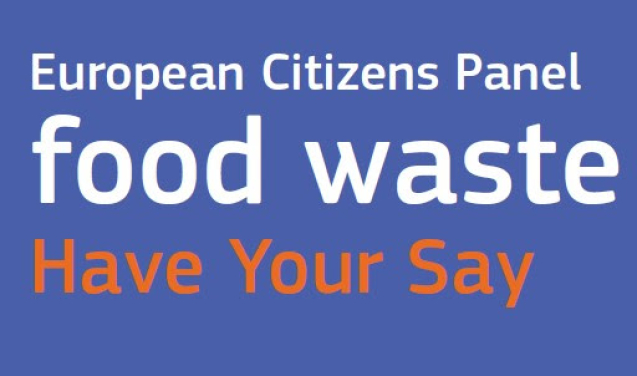II European Citizens’ Panel on Food Waste

This weekend citizens would be able to provide their input on food waste, thanks to the II European Citizens' Panel hosted by the European Commission. This is the second of a new generation of Citizens' Panels launched as a follow-up to the Conference on the Future of Europe, including participative practices in the policy-making process on certain key policy areas. In line with the proposals from the Conference of the Future of Europe and the Farm to Fork Strategy, food waste reduction is one of the main points included in the Commission's Work Programme for 2023.
It is important to remember that the Commission had already started a public consultation process on a legislative proposal in October 2021. The consultation, which was addressed to stakeholders in the food supply chain but also open to citizens, was closed in August 2022 and resulted in a summary report. A majority of the respondents (74%) agreed or strongly agreed with the setting of legally binding food waste reduction targets through measures such as improving efficiency along the food supply chain, education and training, facilitating donation of surplus food and using surplus food and by-products.
The participants in the citizens' panels, randomly selected representatives of the EU's diversity in terms of geography (national and urban/rural origin), gender, age, socio-economic background, and level of education, will be divided into discussion groups and will be given topics to discuss and engage the Commission with pertinent questions.
The outcomes of these panels are EU citizens' recommendations to support the Commission’s work on food waste, including the legislative proposal to set EU food waste reduction targets. Recommendations will also serve as a guide to help Member States in achieving the EU food waste reduction targets. This II session was preceded by the first one in December and it will be followed by a final session on 10-12 February in Brussels, with the submission of the panel's report to the Commission.
At the moment, the Commission plans to adopt the legislative proposal by June 2023. It will then have to be approved by the European Parliament and the Council, a process which can take up to two years. After that, it can take another year to transpose the directive into law by the EU Member States. In a worst-case scenario, the process will be finalized by 2026.
Plenary discussions on 20 January: 14:30 - 19:00
Plenary discussions on 22 January: 12:00 - 14:00
Agenda available here
Latest News

EU Commission Presents New Five-Year Consumer Policy Roadmap
The EU Commission has unveiled its new five-year roadmap for consumer policy, outlining...

Euro Coop Co-Signs Joint Position Paper on Omnibus I
Euro Coop, together with CNA , Legacoop and ECCO , has released a joint position paper in...

Euro Coop is seeking an Erasmus+ Policy Intern
Euro Coop – The European Community of Consumer Co-operatives is seeking a Policy Intern...
Latest Stories

UN Recognises Cooperatives with Decadal International Year
Euro Coop warmly welcomes the United Nations General Assembly’s historic resolution to...

Skupina COOP Wins at the European Commerce Awards 2025
Euro Coop warmly congratulates Skupina COOP , our member from the Czech Republic, for winning...

FNCC Showcases Consumer Cooperation at GSEF 2025 in Bordeaux
Euro Coop member FNCC proudly participated in the Global Social Economy Forum (GSEF) 2025 ,...

